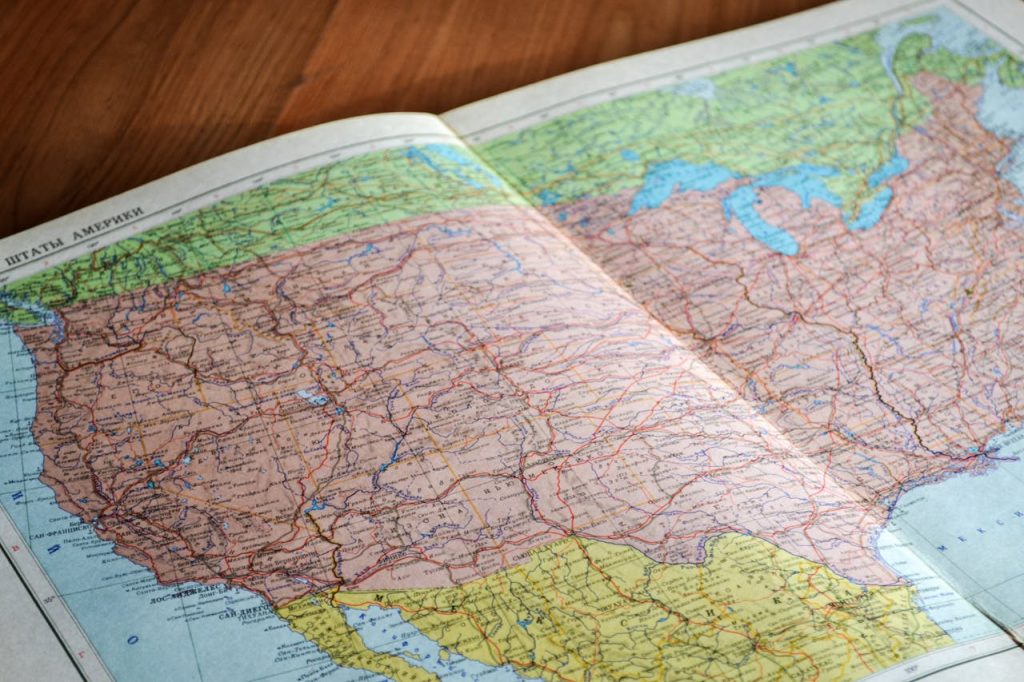
Image Source: pexels.com
If you’re thinking about moving or just curious about how your state stacks up, you might want to pay close attention to where you live. Not all states are created equal when it comes to jobs, happiness, and safety. In fact, some states consistently fall short, leaving their residents struggling with high unemployment, low life satisfaction, and even personal safety concerns. Understanding which states are lagging behind can help you make smarter decisions for your family, your career, and your overall well-being. Let’s dive into the 12 states that are failing their residents—and what you can do if you find yourself living in one of them.
1. Mississippi
Mississippi often ranks at the bottom for jobs, happiness, and safety. The state has one of the highest poverty rates in the country, and job opportunities are limited, especially in rural areas. U.S. News & World Report, Mississippi also struggles with low life expectancy and high crime rates. If you’re a resident, consider seeking remote work opportunities or upskilling to improve your job prospects.
2. Louisiana
Louisiana faces persistent challenges with unemployment and crime. The state’s violent crime rate is among the highest in the nation, and job growth has lagged behind the national average. Residents often report lower levels of happiness, partly due to economic instability and natural disasters. Building a strong community network and staying informed about local job openings can help if you live here.
3. West Virginia
West Virginia’s economy has been hit hard by the decline of coal mining, leading to high unemployment and limited job diversity. The state also ranks low in health and happiness, with many residents struggling with opioid addiction and poor access to healthcare. Exploring online education or training programs can open doors to new career paths.
4. New Mexico
New Mexico’s beautiful landscapes can’t hide its struggles with crime and joblessness. The state has one of the highest property crime rates in the U.S., and many residents face underemployment. If you’re in New Mexico, consider networking with local business groups or looking into industries like tourism and renewable energy, which are showing growth.
5. Alabama
Alabama’s job market is slow to recover from economic downturns, and the state has a higher-than-average rate of workplace fatalities. Residents also report lower happiness levels, often tied to limited access to healthcare and education. Taking advantage of state-sponsored job training programs can help you get ahead.
6. Arkansas
Arkansas struggles with both economic opportunity and public safety. The state’s median household income is well below the national average, and violent crime rates are concerning. If you’re an Arkansas resident, focusing on financial literacy and budgeting can help you make the most of your resources while you seek better opportunities.
7. Oklahoma
Oklahoma’s economy is heavily dependent on oil and gas, making it vulnerable to market fluctuations. The state also ranks low in health and happiness, with high rates of obesity and mental health issues. Residents can benefit from diversifying their skill sets and exploring careers in growing sectors like tech or healthcare.
8. Kentucky
Kentucky faces challenges with job growth, health, and safety. The state’s opioid crisis has impacted both happiness and public safety, while job opportunities remain limited in many rural areas. If you’re in Kentucky, consider reaching out to local workforce development agencies for support and training.
9. Alaska
Alaska’s remote location contributes to high living costs and limited job options. The state also has a high rate of violent crime, particularly in rural communities. Residents can look into remote work or seasonal employment opportunities to supplement their income.
10. South Carolina
South Carolina’s job market is growing, but not fast enough to keep up with population growth. The state also struggles with high rates of property crime and lower-than-average happiness scores. If you’re a resident, staying proactive about personal safety and seeking out local job fairs can make a difference.
11. Tennessee
Tennessee’s booming cities can’t mask the struggles in rural areas, where jobs are scarce and crime rates are higher. The state also ranks low in overall happiness, with many residents citing financial stress. Exploring side hustles or gig work can help bridge the gap while you search for more stable employment.
12. Missouri
Missouri rounds out the list with its combination of slow job growth, high crime rates, and low happiness scores. The state’s urban centers, in particular, face significant safety challenges. Residents can benefit from community engagement and staying informed about local job training initiatives.
Turning Challenges Into Opportunities
Living in a state that’s struggling with jobs, happiness, and safety doesn’t mean you’re stuck. There are always ways to improve your situation, whether it’s by seeking new skills, building a supportive network, or exploring remote work options. Remember, your state’s statistics don’t define your future—you do. You can find opportunities even in the most challenging environments by staying proactive and informed.
What’s your experience living in one of these states? Do you agree with the rankings, or have you found ways to thrive despite the challenges? Share your thoughts in the comments below!
Read More
How Our Society Is More Dangerous Than Ever and No One Is Paying Attention
Could Wealth Inequality Destroy Democracy? The Warning Signs Are Already Here

Travis Campbell is a digital marketer/developer with over 10 years of experience and a writer for over 6 years. He holds a degree in E-commerce and likes to share life advice he’s learned over the years. Travis loves spending time on the golf course or at the gym when he’s not working.












